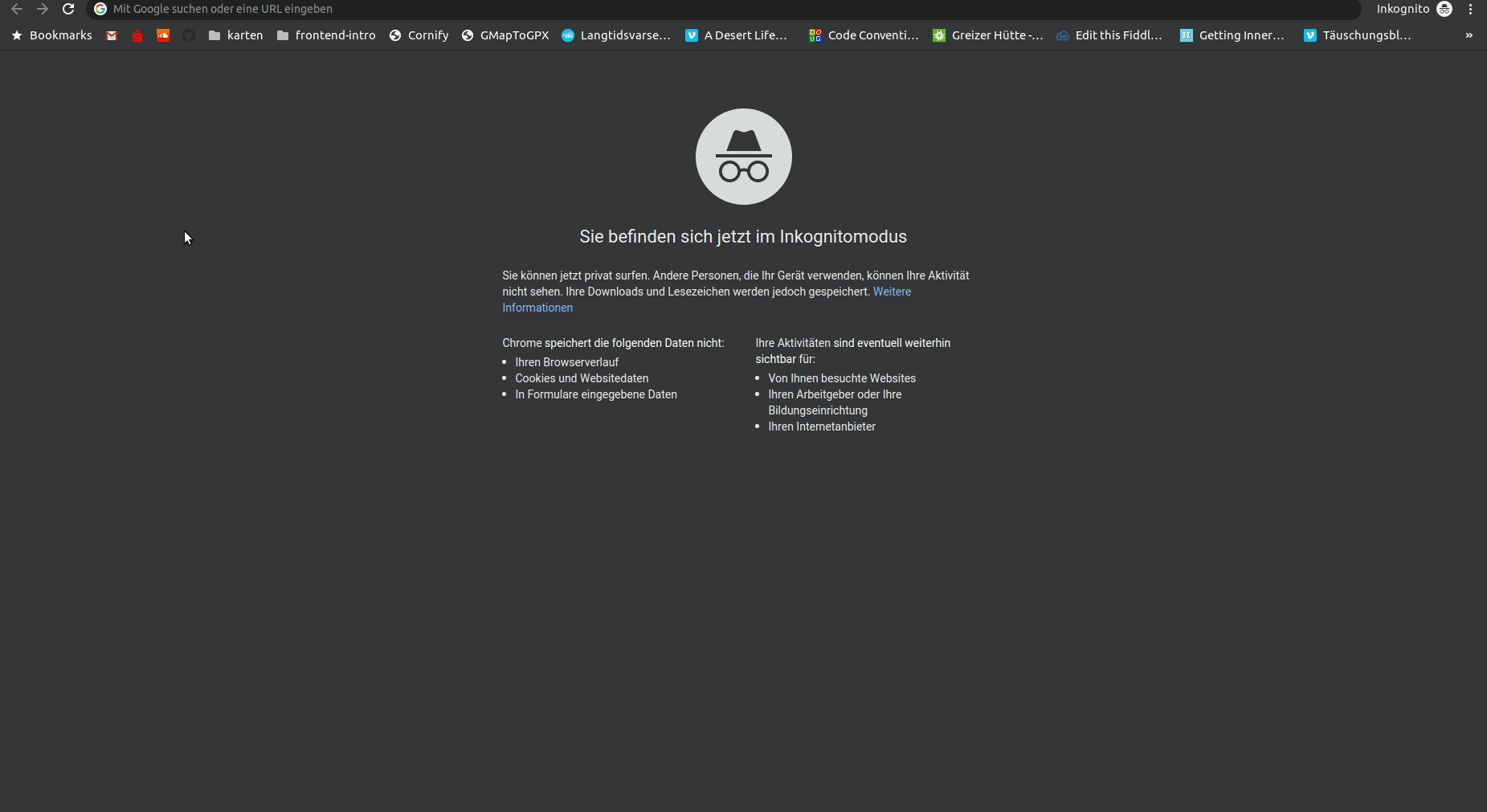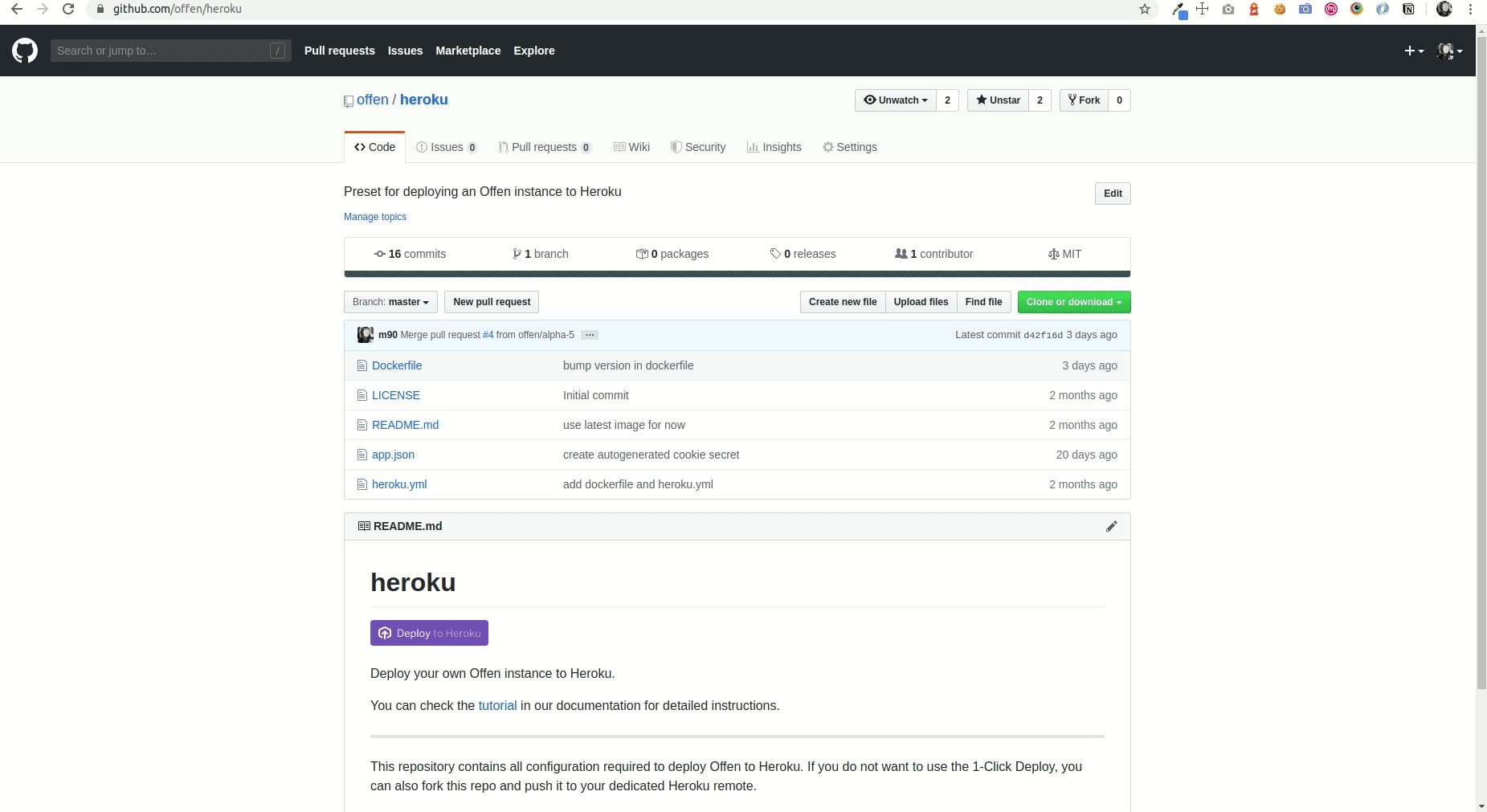Offen Fair Web Analytics is a open and self hosted web analytics tool that treats operators and users as equal parties.

13 Apr 2020, Frederik Ring
Episode Three — Displaying data
In the middle of strange times Milestone 3 - "Displaying Data" - is done. This means we focused on how we aggregate and display the data Offen Fair Web Analytics Fair Web Analytics collects in a way that operators can use it to improve their services and users can understand what is being collected and what it means for their privacy.
As we are now cutting official alpha releases already, we have also changed the format of our project updates. Instead of one pull request per milestone, we now have an update that spans across multiple releases. During Milestone 3 we have released the following versions:
As always, you can download the latest release from https://get.offen.dev or pull it from Docker Hub.
Achievements
Improved and annotated Auditorium
The Auditorium is where both users and operators access and manage usage data. Operators want to gain insights in how their services are being used, users want to understand what data Offen Fair Web Analytics Fair Web Analytics is collecting and manage this data.
The user facing Auditorium is now annotated with explanations for each metric and also explains analytics-specific terms and answers frequently asked questions. This has been implemented in PR 339.

In addition to that we added new metrics and improved the overall user experience for both users and operators alike. Relevant PRs are 331, 328, 327, 324, 319, 317, 291
Account Management fundamentals
Operators that are using Offen Fair Web Analytics Fair Web Analytics to improve their services are likely to work in teams. This is why the application needs tools for managing user logins and accounts for segmenting usage data. In a first draft we added basic versions of these features so that the absence of such capabilities doesn't further prevent the adoption of Offen Fair Web Analytics Fair Web Analytics. This initiative has been started in PR 288 and will be refined further during Milestone 4.
In-Browser setup
The command line can seem daunting when you don't use it regularly. This is why we added an in-browser setup screen for Offen Fair Web Analytics Fair Web Analytics. Instead of performing the initial setup using the offen setup command from the CLI, operators who prefer to do so can now use their browser to navigate to the /setup URL of their installation and perform the initial setup there. We hope this helps us gaining further traction with semi-technical users that want to use privacy friendly tools. This has been implemented in PR 299.

Goodbye, Choo
We started out with using Choo as our frontend framework and it was a great choice as it allowed us to build dynamic UIs very rapidly. But as Offen Fair Web Analytics's Auditorium was growing over the last few months we noticed its lack of mechanisms for breaking interfaces into components was starting to slow us down significantly and made simple changes cumbersome to implement.
This is why - before starting work on the annotated Auditorium - we migrated the application to use Preact in PR 289. Preact is a great choice as it allows us to use modern paradigms for programming interfaces without having to buy into a Facebook-dominated ecosystem. The library is distributed under a MIT license.
Signed binary downloads
As we start to target more and more distribution channels, ensuring the integrity of what people actually download is very important for an application like Offen Fair Web Analytics. With PR 338 we started signing our binaries with a GPG key. Downloaders can now verify that a binary they are planning to use is the one we intend to distribute:
gpg --keyserver pgp.mit.edu --recv F20D4074068C636D58B53F46FD60FBEDC90B8DA1
gpg --verify offen-linux-amd64.asc offen-linux-amd64
Safari Support
Offen Fair Web Analytics generates client side keys for encrypting data for each user. At the end of Milestone 2 we noticed issues where the Safari browser would not store these keys properly which means users would lose access to their user data. We fixed this in PR 282 by adding a fallback mechanism that Safari can use. Keys are guaranteed to be safe from third party access in both implementations.
1-Click Deploy
Self hosted software is a great fit for privacy focused software like Offen Fair Web Analytics. Yet, it can seem daunting to non-technical users and make them stick to established SaaS solutions longer than needed. This is why we put a lot of effort into finding easy "1-click" options to deploy an Offen Fair Web Analytics instance. In Milestone 3 we have created a 1-click solution for deploying Offen Fair Web Analytics to Heroku: https://github.com/offen/heroku. Using free resources only, people interested in running Offen Fair Web Analytics can now deploy a production ready instance to Heroku in less than 1 minute. We hope this encourages website operator to consider self hosted software and Offen Fair Web Analytics as a real option. Required changes for this were implemented in PR 287.

To offer even more options we are also looking into building a 1-click option for other platforms like YunoHost and DigitalOcean very soon.
Next up
Milestone 4 is up next and is called "Managing Data". This means we will focus on features that allow operators and users to manage their usage data and Offen Fair Web Analytics instances.
This is also where we will have a slight deviation from the original product plan: We originally had an item called "Selective Data deletion for users", yet as we have moved to focus on self-hosting more and more, this feature does not make too much sense anymore. Instead we will allow users to delete their data tied to an instance entirely and will make it easy to follow how deletion works and what the implications are.
Account management
In addition to the basic account management features Offen Fair Web Analytics already offers, we'll work on implementing more fine grained access control mechanisms so that teams that are using Offen Fair Web Analytics can easily and safely share access to an instance. In addition to that we will also revisit existing features and try to make them easier to use and more accessible.
Collecting and implementing real world user feedback
We are still labeling Offen Fair Web Analytics as alpha right now, but we think the next weeks could be the right time to slough that potentially scary label off and attract more users by going beta.
Before we do so though, we would like to collect feedback from people that are brave enough to deploy the existing alpha version and use it for a while. Luckily there are some, so that's a good start, but in case you do know of people who might be interested in deploying and testing Offen Fair Web Analytics, we'd be happy if you could spread the word. Documentation for running Offen Fair Web Analytics is readily available at https://docs.offen.dev/running-offen/
Getting your hands dirty
Installing Offen Fair Web Analytics as a systemd service
We're eager to get people to install Offen Fair Web Analytics and send us their feedback and tell us about their experience, so instead of adding features to the software itself, we will today look at how Offen Fair Web Analytics can be installed on a Linux system that supports systemd.
Download the binary
First, download and unpack the tarball containing latest release and verify its signature:
mkdir -p /tmp/offen-download && cd /tmp/offen-download
curl -sSL https://get.offen.dev/v0.1.0-alpha.5 | tar -xvz
gpg --keyserver pgp.mit.edu --recv F20D4074068C636D58B53F46FD60FBEDC90B8DA1
gpg --verify offen-linux-amd64.asc offen-linux-amd64
Install the binary
Next, let's move the downloaded version to /opt and create a symlink in /usr/bin so the command is available in the system's PATH:
sudo mkdir -p /opt/offen/v0.1.0-alpha.5
sudo cp offen-linux-amd64 /opt/offen/v0.1.0-alpha.5
sudo ln -s /opt/offen/v0.1.0-alpha.5/offen-linux-amd64 /usr/bin/offen
You can verify that this worked as intended like this:
$ which offen
/usr/bin/offen
$ offen version
INFO[0000] Current build created using revision=v0.1.0-alpha.5
Scaffold the required directories
Offen Fair Web Analytics follows the Linux Filesystem Hierarchy Standard, so next, we need to create the directories for storing data, configuration and certificates:
sudo mkdir -p /etc/offen && sudo touch /etc/offen/offen.env
sudo mkdir -p /var/opt/offen
sudo mkdir -p /var/www/.cache
Creating the service
The Offen Fair Web Analytics server needs to be run in a supervised manner so we can be sure it is always responding. systemd can do this for us. First we create the service definition:
sudo touch /etc/systemd/system/offen.service
and populate this file with the following content:
[Unit]
Description=Offen Service
[Service]
ExecStart=/usr/bin/offen
Restart=always
[Install]
WantedBy=multi-user.target
Now we can register the service with systemd itself:
sudo systemctl daemon-reload
sudo systemctl enable offen
sudo systemctl start offen
You can check whether this worked correctly using status:
$ sudo systemctl status offen
● offen.service - Offen Service
Loaded: loaded (/etc/systemd/system/offen.service; enabled; vendor preset: enabled)
Active: active (running) since Mon 2020-01-27 15:57:58 CET; 1min ago
Main PID: 6701 (offen)
Tasks: 11 (limit: 4915)
CGroup: /system.slice/offen.service
└─6701 /usr/bin/offen
Running the in-browser setup
To create the initial account for your Offen Fair Web Analytics install, head to [localhost:3000/setup](http://localhost:3000/setup) and fill out the form. After doing so, your Offen Fair Web Analytics instance is ready for local use! If you want to expose this instance to the public internet, refer to our docs site for instructions on how to get free automated SSL up and running.
Feedback? Found a bug?
If you have any feedback, comment or bug report on this milestone release, we'd love to hear from you. Open an issue or send us an email at hioffen@posteo.de.